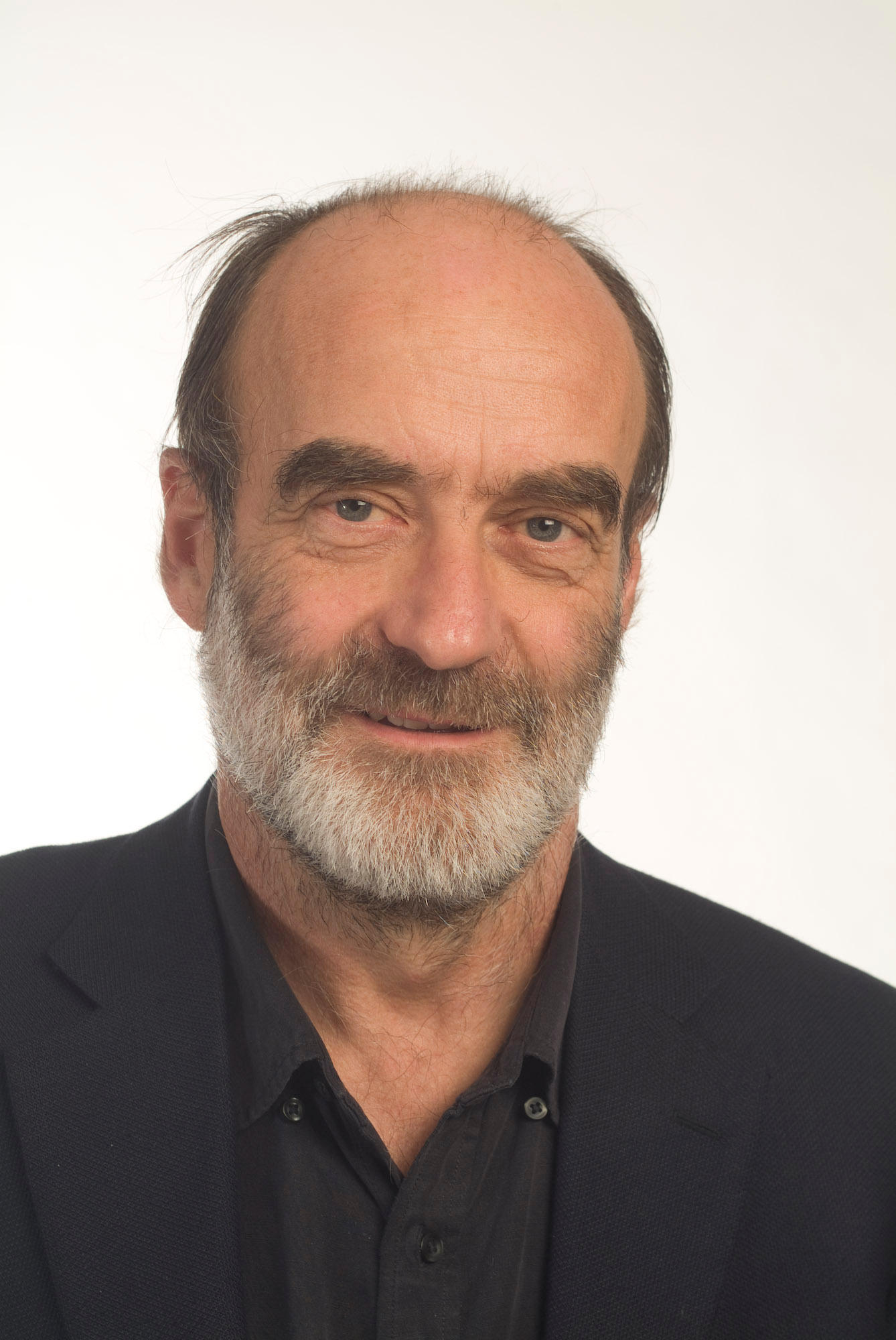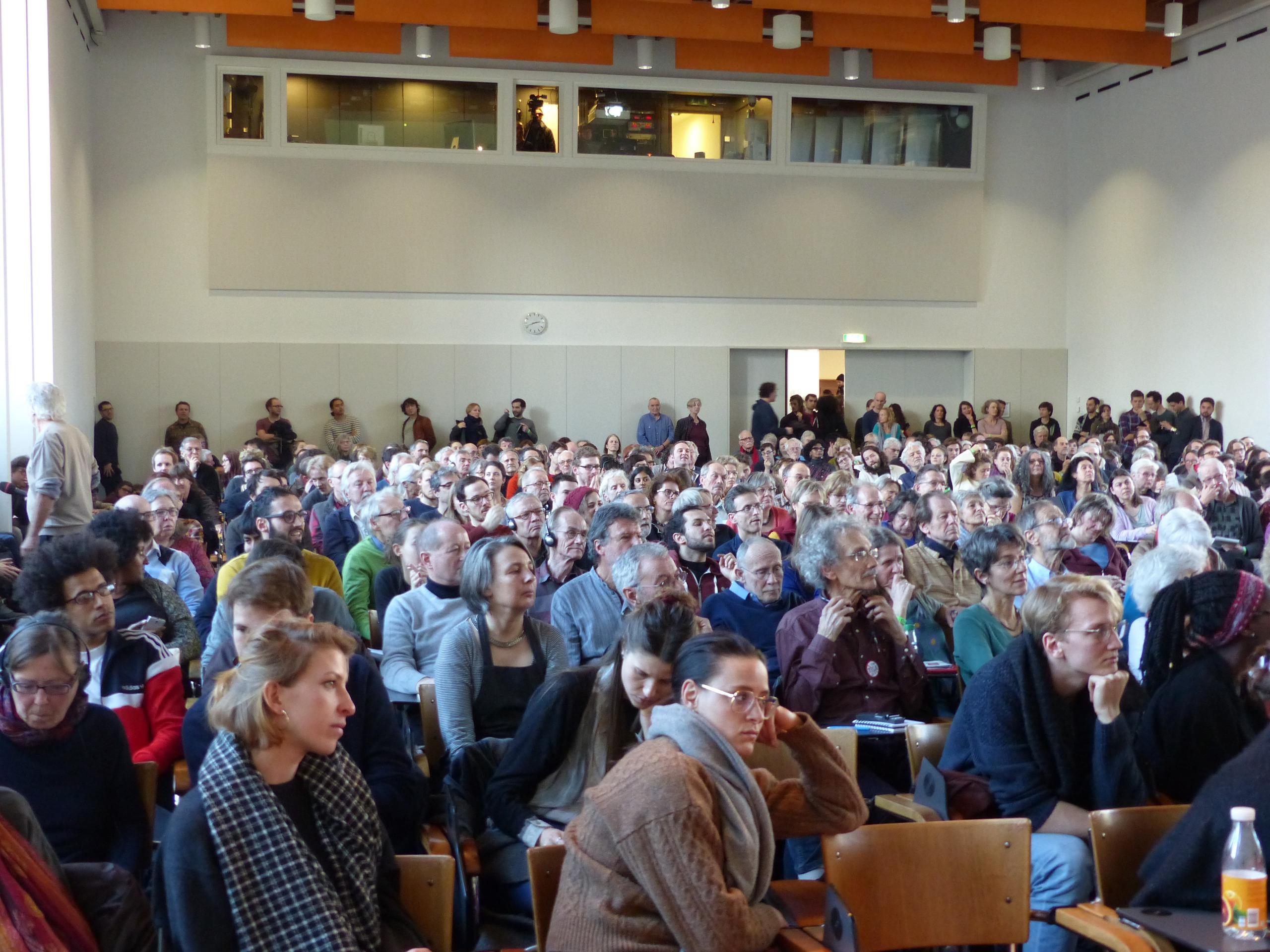Crises that can strengthen democracy

From the United States to Europe, wealthy and captivating populists such as US President Donald Trump and Swiss People’s Party backer Christoph Blocher pose a challenge for democracies. In a Q&A, Hanspeter Kriesi, a prominent Swiss political scientist, surveys the situation.
This article is part of #DearDemocracy, the platform for direct democracy of swissinfo.ch.
swissinfo.ch: A major factor behind the Brits’ surprising Brexit decision was a figure taken out of the air, namely the GBP 350 million that Great Britain was said to transfer to Brussels. Per week. How could the EU’s populist opponents win such an important referendum with such a barefaced lie?
Hanspeter Kriesi: The figure was fake, certainly, but I doubt whether it carried the day. The vote wasn’t won on the basis of one set of lies or another. The Brits – elites included – have always been Eurosceptics. The decisive factor was that the Tories, the governing party, were split.
swissinfo.ch: In 1992, Blocher led the Swiss electorate to its rejection of Switzerland’s access to the European Economic Area (EEA). Did that mark the birth of right-wing populism in Switzerland?
HP.K.: Yes, the rise of the Swiss People’s Party (SVP) in Switzerland began with that referendum. Unlike other parties on the populist right, though, the SVP started by campaigning against the EU, not against immigration. As long ago as 1986 it conducted a campaign against Switzerland joining the UN, though unsuccessfully in that case. Then its campaign against the EEA was successful, if only just barely. It wasn’t until afterwards that it discovered the subject of immigration, and the subject of Islam came along even later.
It is no coincidence that right-wing populists in Europe campaign on these twin issues, European integration and migration. They are calling for the defence of the nation-state. National sovereignty and culture must be protected from multiculturalism, European integration and globalization.

swissinfo.ch: Is Switzerland seen in Europe as a pioneer of right-wing populism?
HP.K.: The populist trend began in the 1980s with the National Front in France, while the rise of the SVP in Switzerland, as I say, dates back to 1992. So in this connection it didn’t act as a role model: that honour goes to the National Front.
swissinfo.ch: The presidential election in France ended in a fiasco for both the two former ruling parties: they barely managed a quarter of the votes between them. Are the days of the traditional people’s parties numbered, to the benefit of Macron’s “En Marche!” and other such movements?
HP.K.: In contrast to other countries, the parties in France are generally weak. In Switzerland they are far stronger and more consolidated. This relative volatility of the French parties is nothing new. The Gaullists, for example, kept changing the party’s name. What is special is the magnitude of their problems. It may be that Macron’s movement will lead to the creation of a new centre-left party that will replace the Socialist Party.
swissinfo.ch: Germany is a robust democracy with a strong economy, but with an extremely radical right-wing opposition – to Chancellor Angela Merkel and her CDU and to the Social Democrats alike. Can we speak of a systemic crisis as some see it with its causes in the devastating global financial crisis that hit in 2008?
HP.K.: I question whether a country like Germany has a systemic crisis at all. It’s a long time since the parties were the most trustworthy organizations – not only in Germany, but elsewhere, too. But in Germany, there has been no decline in the satisfaction of the citizens with democracy, or their trust in the government.
Satisfaction with democracy in north-western Europe was generally unaffected by the financial and economic crisis, because the major parties have not adopted Euroscepticism or the rejection of immigration and Islam from the right-wing opposition. In southern Europe especially, in contrast, there has been a major loss of confidence.
Hanspeter Kriesi
Now 67, Kriesi is one of Switzerland’s most prominent political scientists.
He has been a professor of comparative politics at the European University Institute in Florence, Italy, since 2012.
Between 2005 and 2012, he was director of the “Challenges to democracies in the 21st century” research programme of the Swiss National Fund (SNF).
Before that, he was a professor at several universities including those in Amsterdam, Geneva, Cornell, Berlin and Zurich.
swissinfo.ch: Italy stands for democracy in an ongoing political crisis. Matteo Renzi failed spectacularly, both with his constitutional reform and as prime minister: he wanted to make the country more governable by making the Senate smaller. The same thing happened to umpteen of his predecessors, Berlusconi included. Is there such a thing as a hopeless democracy?
HP.K.: Things sometimes really do look hopeless in Italy. But I must put you right on one point: Renzi did not fail spectacularly as prime minister. His government carried out more reforms than all its predecessors put together, in the face of major institutional obstacles.
Italy has an absolutely symmetrical parliamentary system, in which the two chambers have exactly the same powers. Renzi’s party only had a majority in the lower house, not the Senate, which naturally made it difficult for his government to get its reforms accepted.
swissinfo.ch: Is there any way out?
HP.K.: One way out would have been for the referendum to be accepted. That would have enabled the system to function more efficiently. But the problem with Italian democracy – what’s hopeless about it, in my opinion – is that the citizens have absolutely no wish for politics to function more efficiently. They prefer a system that doesn’t work to one that efficiently tells them what to do.
swissinfo.ch: Austrian Federal Chancellor Wolfgang Schüssel took the right-wing populist Freiheitliche Partei Österreichs (FPÖ) into his government. What is the better formula for curbing populism: giving it a share of power, or marginalizing it – as Merkel, her CDU and the SPD in Germany are doing?
HP.K.: Switzerland has also brought the SVP in from the cold. It has been in government for decades. In Holland, a minority government was supported by the party of Geert Wilders. In Denmark, the same was true for ten years. In Finland, the “True Finns” are in government, and so are the populists in Norway. So there are plenty of examples showing that taking right-wing populists into government doesn’t work badly at all. I believe the right-wing populist movements will morph into normal parties, because they represent one of the population’s important concerns. In many areas not relevant to their core beliefs, working with them is no problem.
swissinfo.ch: Is that true everywhere?
HP.K.: The decisive factor is the democratic system. As against the consensus democracies that I’ve just mentioned, there are also the majority democracies – among them France, the UK, and recently also Poland and Hungary. There the question is not about working with the populists as partners, it’s about whether they can win elections, take power, and govern alone.
In France’s run-off ballot it was all or nothing. In Hungary and Poland, Viktor Orban and Jaroslaw Kaczynski may not provide a fantastic experience – but they are democrats, they were elected by a majority, and they didn’t come to power through violence. But they have illiberal ideas of democracy. They always go for the majority view: minorities are not protected. Pluralism – (accommodation of) different ideas and opinions – is not for them. Opposition is shouted down.
Separation of powers is a real problem for them. They battle the legal system and critical media, and they try to declare non-governmental organizations illegal. Hungary is even closing universities. The problem is that these leaders base themselves solely on the democratic principle of election by a majority, losing sight of the fact that elections involve open opinion-forming processes, minorities must be included, and judicial barriers must be respected. The problem is thus with populists in presidential and parliamentary systems, in which majorities are the main thing. When populists invoke the democratic principle, they violate the liberal principles of democracy.
swissinfo.ch: American journalist and Pulitzer Prize-winning author Anne Applebaum sees parallels between the 1930s and the present day, in terms of populism and certain other factors. She even fears a new war. Do you share her views?
HP.K.: I’m optimistic. Europeans may be dissatisfied with the democracy that they have, but they are very closely bound up with democratic principles. Spain has shown that the more dissatisfied people are with the economy and the government, the more vigorously they call for democratic principles to be upheld. In 2011, at the height of the economic crisis, a movement called the Indignados emerged. This “Outraged” movement’s motto was “real democracy now!”. A study that we conducted showed that the worse that a country’s economy is performing, and the more dissatisfied people are with the government, the more they insist on democratic principles.
swissinfo.ch: Populism as therapy for the revitalization of the democracies?
HP.K.: The populist challenge is forcing the elites to put themselves forward as fellow defenders of the populists’ values. France’s new president Emmanuel Macron, who represents pro-European views, is typical of this approach – presenting himself as the best European. Imagine that Martin Schulz, former president of the EU parliament, becomes Germany’s new chancellor in the autumn – while the EU Commission features people like Pierre Moscovici, with a vision of how Europe must be more thoroughly integrated. In the not-too-distant future, Europe’s current crisis could well develop into a step forward. For that to happen, the pro-European elites would have to get better at explaining their vision.
Find the author on Twitter: @RenatKuenziExternal link

In compliance with the JTI standards
More: SWI swissinfo.ch certified by the Journalism Trust Initiative












You can find an overview of ongoing debates with our journalists here . Please join us!
If you want to start a conversation about a topic raised in this article or want to report factual errors, email us at english@swissinfo.ch.